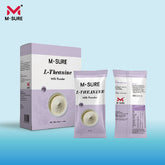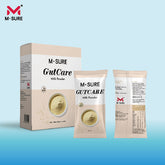Scientific Evidence on Plant-Based Diets and Chronic Disease Prevention
by
BiotechAusway
26 Sep 2025
1. Evidence from Studies
-
Australian research shows predominantly plant-based diets significantly reduce chronic disease risk.
-
University of Sydney: countries with higher plant protein intake have longer life expectancies.
-
For adults >60, increasing plant protein (legumes, nuts, whole grains) lowers cardiovascular and metabolic disease risk.
-
International studies: plant-based diets linked to a 32% lower combined risk of chronic diseases (cancer, heart disease).
2. Key Recommended Plant-Based Foods
-
Vegetables & Legumes: high in fiber/antioxidants (e.g., beetroot, kale, spinach); reduce inflammation and insulin resistance.
-
Fruits: citrus fruits, kiwifruit, and vitamin C–rich options support eye health and reduce macular degeneration risk.
-
Whole Grains & Nuts: whole grains provide steady energy; 30 g nuts (almonds, walnuts) daily reduce dementia & CVD mortality by 23%.
-
Healthy Fats: avocados and olive oil (monounsaturated fats) help maintain healthy cholesterol levels.
3. Dietary Patterns and Chronic Disease Links
-
Mediterranean Diet: plant-based with olive oil/fish; lowers inflammation and cardiovascular risk.
-
Plant-Based Diet Index (PDI): Zhejiang University research—high PDI adherence → 17% lower all-cause mortality, fewer cardiovascular & cancer deaths.
-
Avoiding Pro-Inflammatory Foods: limiting processed/grilled meats (polycyclic aromatic hydrocarbons) reduces rheumatoid arthritis risk.
4. Practical Recommendations
-
Diverse Intake: eat ≥5 different colored fruits/vegetables daily (e.g., leafy greens + carrots + brown rice).
-
Substitute Animal Proteins: replace some red meat with tofu, legumes; lowers saturated fat intake.
-
Community Support: Australian government promotes plant-based diets via health education and “fruit & vegetable prescriptions”.
5. Considerations for Special Populations
-
Elderly: ensure adequate plant protein for muscle health; supplement vitamin B12 if needed.
-
Children: allow moderate animal protein but balance with vegetables and whole grains.






